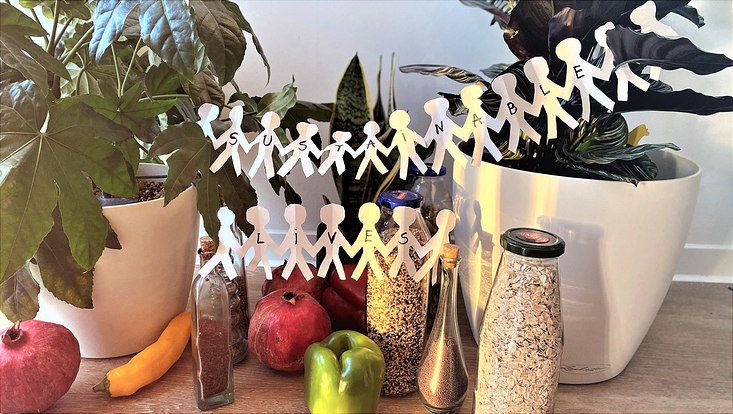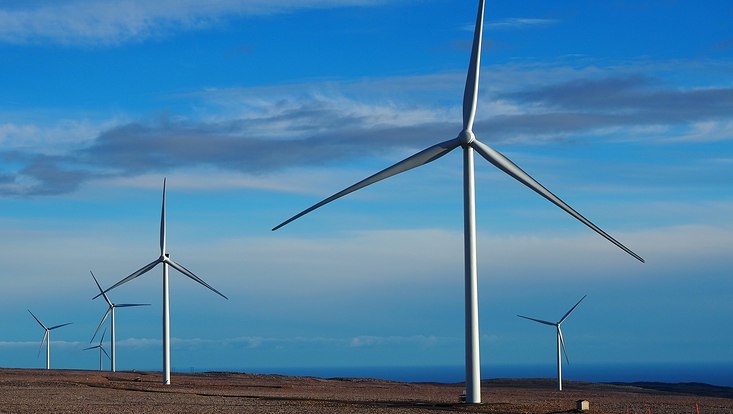Society Research
Second interim report of the CSS Working Group "Sustainable Lives"
7 April 2022, by CSS

Photo: private
In December 2020, the Center for Sustainable Society Research (CSS) approved the establishment of the Working Group "Sustainable Lives".
This interim report presents the current progress of the working group “Sustainable Lives” and the research activities during the reporting period.
Research activities
Several publications, that are analysing various factors of behavioural decisions related to sustainability considerations, were introduced in 2021, whereby a few of these are currently under review or are available as a working paper only. In addition to three publications concerning the relevance of sustainable nutrition on social media (Hoppe and Kleinen-von Königslöw 2021a/b; Kley et al. 2021), the scope of the publications covers: the impact of reasons to reduce meat consumption on intentions, behaviour and satisfaction (Perino and Schwirplies 2021); sustainable nutrition in terms of social differentiation (Trübner et al. 2021); self-image concerns in moral voting (Mechtenberg et al. 2021); influence of green residential environment on life satisfaction and relocations decisions (Kley and Dovbishchuk 2021); the development of professional practices and role models of ecologically committed journalists (Brüggemann et al. 2021); and the relevance of defaults, recommendations, and mandatory minimum contributions on the private provision of climate protection (Bruns and Perino 2021).
A joint stated choice experiment by Grischa Perino and Henrike Schwickert was carried out in 2021. The aim of the experiment is to analyse the consumers' willingness to pay for state animal welfare labelling. The data collection phase of the experiment was successfully completed. The researchers have started with the analysis.
Another joint experiment by Grischa Perino and Henrike Schwickert is a survey-based experiment that deals with various forms of animal welfare tax compared to a CO2 tax on meat. The conceptualization phase of the experiment’s design is completed and the collaboration contract has been awarded.
The first phase of the two-wave panel study that deals with the importance of a green environment for relocations decisions under the supervision of Stefanie Kley is completed. The beginning of the second wave was scheduled for the end of 2021.
Dissemination activities
The internal workshop of the working group was held in August on site in Hamburg. The workshop participants discussed the eventual willingness to pay for state animal welfare labeling; possibilities to control and promote more sustainable food consumption; associations of vegetarian diets with news consumption, social media use and communicating with the social environment; the ways food covered in national newspapers in different cultural and socio-economic contexts; and approaches to analyze the development of the veganism discourse in German print media. The speakers were Henrike Schwickert, Claudia Schwirplies, Alicia Dunker, Michael Brüggemann and Markus Majewski.
“Meaty arguments: The impact of reasons to reduce meat consumption on intentions, behavior & satisfaction“ was presented by Grischa Perino as a part of a Food Experimental Economics Workshop organized by Rennes School of Business in February. Additionally Grischa Perino talked on the topic of ranking measure of life satisfaction in the scope of an event organized by University of Oxford and University of Cambridge in May.
PhD Student Markus Majewski gave a talk on a discourse-linguistic study of veganism in Germany in the recent "Research Kaleidoscope" of German Linguistics in July.
The design of the experiment “Consumers' willingness to pay for state animal welfare labelling: Evidence from a stated choice experiment” was presented by Henrike Schwickert at the PhD student seminar in Kassel in July and in the scope of a young researchers' workshop in Oldenburg in October.
The 15th meeting of the annual European Sociological Association Conference and the third session of Academy of Sociology Conference included each two talks of “Sustainable Lives” participants: Stefanie Kley, Katharina Kleinen-von Königslöw and Alicia Dunker on „Media diets of vegetarians: How news consumption, social media use and communicating with one’s social environment are associated with a vegetarian diet” and Stefanie Kley with Tetiana Dovbishchuk on the paper “How a lack of green in the residential environment lowers the life satisfaction of city dwellers and increases their willingness to relocate”.
The latter one (Kley and Dovbishchuk 2021) was additionally presented within the second meeting on environmental social sciences organized by University of Oxford in July; as a colloquium speech at the University of Bern in October; on the satellite event of the conference on complex systems held in Lyon in October; on the annual conference in cooperation with Venice International University and Academy of Sociology in November; and an the International Population Conference of International Union for the Scientific Study of Population in December.
You can find out more about the Working Group "Sustainable Lives" here.
Literature:
Brüggemann, M., Frech, J., & Schäfer, T. (2021). Transformative Journalisms: How the ecological crisis is transforming journalism. https://doi.org/10.31219/osf.io/mqv5w, pre-publication.
Bruns, H., & Perino, G. (2021). Point at, nudge, or push private provision of a public good?. Economic Inquiry 59(3), 996-1007 https://doi.org/10.1111/ecin.12981.
Hoppe, I. & Kleinen-von Königslöw, K. (2021a) Everyday Conversations about Food on Social Media: A Comparative Analysis of Sustainability Framing. Special Issue in Environmental Communication, under review.
Hoppe, I. & Kleinen-von Königslöw, K. (2021b): Like a Halloween Horror Show? Das Framing von Ernährung und Nachhaltigkeit in Alltagsdiskussionen auf Facebook-Seiten von Supermärkten in fünf Ländern. In: Kümpel, A.S., Peter, C., Schnauber-Stockmann, A., & Mangold, F. (Hg.): Nachhaltigkeit als Gegenstand und Zielgröße der Rezeptions- und Wirkungsforschung. Aktuelle Studien und Befunde, accepted for publication.
Kley, S. & Dovbishchuk, T. (2021). How a Lack of Green in the Residential Environment Lowers the Life Satisfaction of City Dwellers and Increases Their Willingness to Relocate, Sustainability 13(7), 3984, https://doi.org/10.3390/su13073984
Kley, S., Kleinen-von Königslöw, K.; Dunker, A. (2021). Media diets of vegetarians. How news consumption, social media use and communicating with one’s social environment are associated with a vegetarian diet, working paper.
Mechtenberg, L., Perino, G., Treich, N., Tyran, J. R., & Wang, S. (2021). Self-Signaling in Moral Voting. CEPR Discussion Paper DP15645, https://cepr.org/active/publications/discussion_papers/dp.php?dpno=15645, under review.
Perino, G., & Schwirplies, C. (2021). Meaty Arguments and Fishy Effects: Field Experimental Evidence on the Impact of Reasons to Reduce Meat Consumption. Available at SSRN https://dx.doi.org/10.2139/ssrn.3920980, under review.
Trübner, M., Nisic, N., Kley, S., Alicia Dunker, A., (2021). Nachhaltiger Lebensmittelkonsum - eine Frage der sozialen Differenzierung? (Sustainable Food Consumption – A Question of Social Differentiation?), working paper.
Conference and workshop contributions related to "Sustainable Lives":
Fundamental Issues in the Measurement of Subjective Well-Being, 5.02 – 06.02.2021
Perino, G.: “The Ranking Measure of Life Satisfaction”
Food Experimental Economics Workshop, 21.05.2021
Perino, G.: “Meaty arguments: The impact of reasons to reduce meat consumption on intentions, behavior and satisfaction”
"Forschungskaleidoskop" der Germanistischen Linguistik, 02.07.2021
Majewski, M.: „‘Aber Fisch isst du schon, oder?‘ - Eine diachrone diskurslinguistische Untersuchung des Veganismus in Deutschland.“
MAGKS Doktorandenkurs, 08.07 – 09.07.2021
Schwickert, H.: „Consumers' willingness to pay for state animal welfare labelling: Evidence from a stated choice experiment “
2nd Meeting on Environmental Social Sciences: Challenges and Solutions for Sustainable Development, 28.07 – 30.07.2021
Kley, S. & Dovbishchuk, T.: “How a lack of green in the residential environment lowers the life satisfaction of city dwellers and increases their willingness to relocate”
15 th European Sociological Association Conference, 31.08 – 03.09.2021
Kley, S., Kleinen-von Königslöw, K.; Dunker, A.: „Media diets of vegetarians. How news consumption, social media use and communicating with one’s social environment are associated with a vegetarian diet”
Kley, S. & Dovbishchuk, T.: “How a lack of green in the residential environment lowers the life satisfaction of city dwellers and increases their willingness to relocate”
3rd Academy of Sociology Conference, 29.09 – 01.10.2021
Kley, S., Kleinen-von Königslöw, K.; Dunker, A.: „Media diets of vegetarians. How news consumption, social media use and communicating with one’s social environment are associated with a vegetarian diet”
Kley, S. & Dovbishchuk, T.: “How a lack of green in the residential environment lowers the life satisfaction of city dwellers and increases their willingness to relocate”
Nachwuchsworkshop des Vereins für Socialpolitik - Ausschuss für Umwelt- und Ressourcenökonomie, 14.10 – 15.10.2021
Schwickert, H.: „Consumers' willingness to pay for state animal welfare labelling: Evidence from a stated choice experiment “
Research Colloquium on Sociology, Universität Bern, 20.10.2021
Kley, S. & Dovbishchuk, T.: “How a lack of green in the residential environment lowers the life satisfaction of city dwellers and increases their willingness to relocate”
Conference on Complex Systems: Migration and Mobility Research in the Digital Era, 27.10.2021
Kley, S. & Dovbishchuk, T.: “How a lack of green in the residential environment lowers the life satisfaction of city dwellers and increases their willingness to relocate”
Annual Conference in Cooperation with Venice International University and Academy of Sociology. Analytical Sociology: Theory and Empirical Applications, 8.11 – 11.11.2021
Kley, S. & Dovbishchuk, T.: “How a lack of green in the residential environment lowers the life satisfaction of city dwellers and increases their willingness to relocate”
Netzwerk Weitblick, Blogger-Influencer-Workshop, 23.11.2021
Dunker, A.: “Wider besseres Essen: Wieso wir was essen”
International Population Conference, 5.12 – 10.12.2021
Kley, S. & Dovbishchuk, T.: “How a lack of green in the residential environment lowers the life satisfaction of city dwellers and increases their willingness to relocate”


